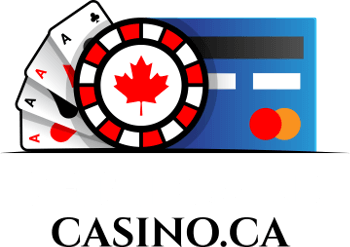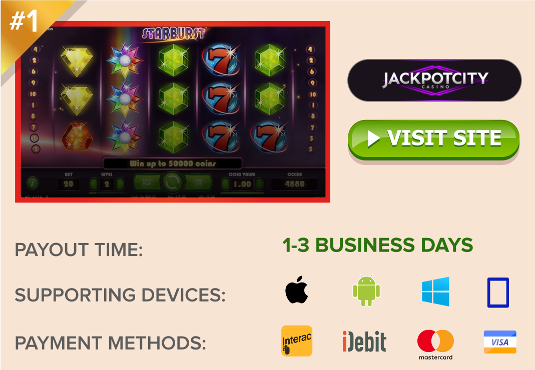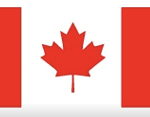How and Where to Grade Collector Cards in Canada
Take your Card Collection to the Next Level with Professional Card Grading
 Millions of people all over the world collect trading cards. It’s a popular hobby here in Canada. Everything from autographed baseball cards, to trading card games like Yu-Gi-Oh! The Card Game, can be extremely valuable. But if you want to know the true value of any card, you’ll need to get it professionally graded.
Millions of people all over the world collect trading cards. It’s a popular hobby here in Canada. Everything from autographed baseball cards, to trading card games like Yu-Gi-Oh! The Card Game, can be extremely valuable. But if you want to know the true value of any card, you’ll need to get it professionally graded.
While there are a number of grading services available, some are vastly more respected than others. We’ll talk about the different services, the process of card grading, what you can expect to pay for it, and reasons why you should (or shouldn’t) have your card collection graded by a professional authentication service.
|
Table of Contents |
Professional Card Grading Services FAQ
We’ll kick things off with some Frequently Asked Questions to help you get a grasp on the process of card grading, and why it matters. Click any question to jump to the answer, or keep scroll down.
1. What is Card Grading?Card grading is a specialty service provided by third-party authenticators who closely inspect every aspect of a card for authenticity and quality. When a card owner submits a card for grading, it comes back with a certificate and grade value. Grading services almost always grade cards on a 10-point scale, with 10 being the absolute best; a grade given only to the most pristine, mint-condition cards. The grade a card is given determines its value for future sale. 2. Why does getting a card graded matter?For a true collector, or a reseller of collectible cards, the benefits of accurate grading are incontrovertible. Generally speaking, the condition of a card is subjective. Professional grading translates opinion into indisputable fact. Anyone can assume their card to be in mint condition, but rarely is that the case. Likewise, anyone can forge an autograph, but when authenticated, an autographed card’s value can rise tremendously. 3. Are graded cards more valuable?Generally speaking, yes. So long as the card has collectible value, and it receives a positive grading, it will be more valuable than an ungraded edition of the same card. Card grading will almost always increase the value of a card, compared to an ungraded card. 4. Are all collectible cards worth having graded?Individually, no. The vast majority of cards are not worth the cost of having them graded. Rare cards, vintage cards, or cards that are in high demand are the only ones that should be considered. If you have a large collection of cards, it may be worth sending in the entire collection. We cover this topic in more detail below. 5. Is card grading expensive?Yes. Plain and simple, yes, you’re going to spend a decent amount of money to get your cards graded with any respectable service. How expensive it is will depend on which grading company you go with, what services you need, and how many cards you’re sending in. On top of that, you’ll need some supplies to submit your card(s) – things like penny-sleeves, card saver holders, packaging materials, etc. If you’re not serious about your card collection, grading may not be for you. 6. Are all card grading services the same?Not at all. Each card grading company has its own standards for grading, and its own pricing schedule to go along with it. Furthermore, some only deal in a limited selection of cards. BVG, for example, only grades vintage cards from 1980 and older. PSA and SGC deal in cards of any age. Please see our section on Respectable Card Grading Services for more information. 7. How do I submit my card(s) for grading?The short answer – put them all in sleeves, put the sleeves in a card saver holder (use more than one if necessary), package it with protective materials and send it off to a pro card grading service with instructions and the appropriate fee enclosed. For the long answer, see our detailed section, How to Send Cards in for Grading, below. 8. What if I collect Gaming and Non-Gaming cards?Some grading services, like Beckett, will ask you to identify whether you’re submitting “Gaming” or “Non-Gaming” card types. Gaming cards are any type of card that can be played with – things like Pokemon, Yu-Gi-Oh!, Magic: The Gathering, or Flesh and Blood. Non-Gaming covers absolutely everything else, in both Sports and Non-Sports categories. If your collection includes both Gaming and Non-Gaming cards, and are required to specify one or the other on the submission form, you will have to choose just one type, and create a second submission for the other. You may or may not be able to send all of your cards in the same package with two submission forms. I would suggest contacting the grading service and asking how to proceed in such cases, just to be sure. |
Respectable Card Grading Services
I’m sure there are plenty of respectable companies out there willing to grade your cards. As for which ones Canada’s premier collectors and resell merchants respect most, there are three that immediately come to mind.
PSA Authentication & Grading ServicesProfessional Sports Authenticators (PSA) is the number one name in card grading services; the pinnacle of collectible authentication. PSA deals mostly in trading cards of all varieties and autograph authentication. Autographs don’t have to be on cards to be eligible. If it’s a picture or photograph, a piece of sports memorabilia, a game ball or trophy – anything you can manage to ship through the mail can be authenticated. PSA even offers a quick-grading service that can be far cheaper, letting customers know if their valuables are worth sending in for grading before committing to the standard price line. See our Complete PSA Review below for more info. SGC Card GradingSportscard Guaranty Corporation (SGC) is an exclusive card grading company known for its high standards and professionalism, particularly in recent years. For almost two decades, SGC graded cards on a scale of 10-100, which may have been the most notable hinderance to the company’s growth. Since transitioning to a standardized 1-10 scale in 2018, combined with streamline rebranding efforts, SGC has risen to the number 2 spot in North American card grading services. An upfront pricing model and expedited services (at additional cost) are some of their finer selling points. See our Complete SGC Review below for more info. BGS / BVG Beckett Grading ServicesBeckett is an industry-leading two-part card grading company, comprised of Beckett Grading Services (BGS) and Beckett Vintage Grading (BVG). BGS deals in modern card assessments, that being any card made in the last 30 years (i.e. 1981 – 2021). BVG deals solely in vintage cards and collectibles; vintage being any collectible, sports or non-sports card printed more than 30 years ago (pre 1980). This BVG card grading walk-through provides unique insight into the process behind grading and authenticating collectible cards and merchandise. See our Complete BGS / BVG Review below for more information. |
The Cost of Card Grading
| Grading a trading card can be rather expensive, depending on where you go and what services you’re looking for. Judging the condition of a card is the most common service, and could cost you anything from a few dollars, to a few thousand. The cost of grading any card is generally base don the graded value of that card. A card valued at $400 might cost $20 to grade, whereas a card valued at $5,000 will cost a lot more. It’s not a percentage per say, but a rising scale. Additional services, such as authenticating an autograph on anything from a collectible card, to a photograph, or sports paraphernalia like a game ball or boxing glove, will cost extra.While prices and availability do change and fluctuate, here’s some basic pricing info taken from the three top card grading services in North America.
PSA Pricing: The cost for grading any card with a value of up to $499 most cards is $20 per card for PSA Club Members, and $50 per card for non-members. There is a 10-card minimum for each of these services. Cards valued higher than $499 will cost anywhere from $100 per card (value $500-$999), up to $10,000 per card (value $250,000+). SGC Pricing: SGC doesn’t offer special membership pricing. Everyone pays the same amount, with the standard being $30 per card, graded at or below $1,499 value. Prices scale up from there, wit the highest being $3,750 for a card valued at or above $100,000. Oversized items, custom encapsulation, and advanced research of non-standard issue cards are also available at addiotnal cost. BGS / BVG Pricing: For in-store grading, Beckett has a very simple pricing guide, based solely on the number of cards being appraised. 1-3 cards costs $12/card, 4+ cards costs $10/card. For expedited grading, the cost rises to $18/card. In-store grading is available at a series of approved retail locations, but they’re all located in or around Texas. Beckett is not currently accepting mail-in submissions. Check the website for updates as to the status of mail-in submissions. |
Are My Cards Worth Grading?
Honestly, most cards are not worth the cost of getting graded. 99.99% of all trading cards are so common that they are worthless. In order to be worth grading, a card must feature all of the following qualities:
An exception to #3 would be cards that belong to a specific team or set. Any member of the starting roster for the 1985 Chicago Bears or 1972 Miami Dolphins, for example, would be worth grading, as team collectors seek out these cards. Vintage cards are often worth grading, especially when they are in good condition. Collectors love a good NM-MT card from yesteryear, and will pay top dollar for it when graded as such. What grading companies look for in a card are the centering, corners, edges and surfaces. A perfectly centered cards always grades better, while a card that is noticeably off center will grade much worse. It’s all about the eye-appeal for collectors. Corners and edges should be in peak physical form for a high grade, and there should be no marks or stains on the surface of the card. If a card features these blemishes, it must be extremely rare/in demand to be worth grading. Your best bet is to look over a card, slowly and meticulously, with a magnifying glass. If you still believe it worthy of a superior grade, then you should consider sending it in for grading. |
How to Send Cards In for Grading
Before you send your card collection in for grading, there’s a few things you need to know. First of all, you’re probably going to pick up some supplies. Shipping any card that you believe has enough value to grade, means subjecting that card to unseen forces. To make sure it gets where it’s going, without any sort of damage, is paramount. So, make sure you have the following items ready.
To prepare your cards for shipping, place each one in a penny sleeve, then in a semi-ridged card holder. Do not use any other types of sleeves or holders, such as screw downs or snap-tights. Although rare, cards can be damaged when opening these types of cases. If you use them, the grading service is likely to return the cards back to you without grading them. Secure the entire stack of cards between the two sturdy pieces of slightly oversized cardboard, then secure the bundle with a rubber band. This will protect the edges of the cards from bending. The rubber band should be tight enough that the cards can’t fall out, but not so tight hat it risks bending any card edges. Next, fill your oversize box with a small amount of packaging material. Place the bundle of cards in top of this packaging material, then fill the rest of the box with more packing peanuts or bubble wrap. Complete and insert the submission form you printed out, along with payment, if necessary. Wrap the entire box in packaging tape. Don’t just get the edges. Remember, card grading is expensive – don’t go cheap on the packaging. Finally, follow whatever instructions are provided by the card grading company to mail the package. Important Notes…Every grading company has their own method of submitting cards and other collectibles for grading. Be sure to carefully read over the instructions provided by your chosen grading service. You’ll be instructed to fill out a submission form to include with the package. Fees will either be paid online before shipping, or must be included in the package. Be sure to pay the correct amount, including grading fees and any other extras. It should also include the price of shipping the collection back to you. When estimating the value of your cards (necessary for most price calculations), do your research. Don’t undervalue your cards to keep the price down, but don’t overvalue them in hopes of getting a higher assessment, either. A professional grading service will give you a proper grade and value based on the card alone, not the amount you pay for it. And if you undervalue the cards, you’re likely to have it sent back, ungraded, or (if you’re lucky) you’ll receive a notice of further payment due before a grading certificate can be processed. |
Top Card Grading Services Reviewed
| Next up, you can read our comprehensive reviews of the three top card grading services in North America. As you’ll soon learn, there are pros and cons associated with each. None are bad, but some are better in certain circumstances. It all depends on what type of collector you are, and what services you need. Click on of the review links below, or keep scrolling to read each one in turn. |
PSA Card Grading Review |
|||||||||||||||||||||||||||||||||||||||||||||||||||||||||||||||||||||||||||||||||||||||||||||||||||||||||||||||||||||||||||||||||||||||||||||||||||||||||||||||||||||||||||||||||||||||||||||||||||||||||||||||||||||||||||||||||||||||||||||||||||||||||||||||||||||||||||||||||||||||||||||||||||||||||||||||||||||||||||||||
|
Adding to the company’s superior reputation is a cash-back policy guaranteeing the accuracy of all PSA assigned grades, provided that the item remains safely sealed within its tamper-evident encasement. Should a card fail to pass PSA authenticity standards beyond its original grading value, PSA will either offer to buy the card at current market value (if it’s no longer of gradable), or refund the difference between the current and original grading values. PSA is a very transparent service, with upfront pricing and clear information about past grading statistics. Both can be viewed online anytime, free of charge. This is helpful, because it allows customers to make educated decisions in terms of what is and isn’t worth grading, and the ideal value of a card to be graded. Vintage card sellers are often drawn to PSA for easily verifiable grade certification via auction warehouses and websites, like eBay. Due to PSA’s meticulous grading process, any card with a PSA grade of 10 tends to be worth more than a SGC or BGS card grade of 10. Pros & ConsPros: As the industry leader, the level of respect commanded by a PSA grading is unparalleled, often resulting in higher card values than rival grading services. Cons: PSA is the most expensive of all card grading services, especially if you’re not a club member. PSA Grading ScaleSince its establishment in 1991, PSA always graded cards on a scale of 1-10. It wasn’t until 2008 that they decided to grade with half-points, but they rarely issue them, and will only do so on scores of 1-9. There’s no such thing as a 9.5 grade from PSA – it’s either 9 or 10. This is one of the main reasons collectors might choose another grading service, if they feel their card should be higher than 9, but might not achieve the perfection of a PSA 10.
Some PSA graded cards will note a Qualifier next to the grade, such as 5 (ST). This means the card is graded 5, with a deduction for “Staining”. Qualifiers that can and will effect PSA grading include:
Services and Cost of PSA Grading
PSA card grading is not cheap, by any means. Fortunately, there’s an upfront pricing guide to inform customers of what they can expect to pay, before preparing a submission. The following price chart and services information comes directly from the PSA website, current August 4, 2021.
|
 Jackpotcity.com is our editorial pick for your gaming needs. Currently offering an entire suite of casino games, as well as a wide range of Canadian deposit options, JackPotCity truly offers world-class gaming.
Jackpotcity.com is our editorial pick for your gaming needs. Currently offering an entire suite of casino games, as well as a wide range of Canadian deposit options, JackPotCity truly offers world-class gaming.

 PSA Card is the world’s premier destination for card grading services. The opinion of a PSA certified card grader is valued above all others, while PSA graded cards, accompanied by a certificate, are unquestionably trusted. With more than 40 million cards graded, worth a cumulative declared value of more than $1 billion in the last 30 years, PSA’s self-proclaimed status as “the largest and most respected third-party authentication and grading company in the world for trading cards and memorabilia” rings true. PSA offers a number of useful resources for card collectors, free of charge. They include an SMR Price Guide, Population Report, and Auction Prices Realized.
PSA Card is the world’s premier destination for card grading services. The opinion of a PSA certified card grader is valued above all others, while PSA graded cards, accompanied by a certificate, are unquestionably trusted. With more than 40 million cards graded, worth a cumulative declared value of more than $1 billion in the last 30 years, PSA’s self-proclaimed status as “the largest and most respected third-party authentication and grading company in the world for trading cards and memorabilia” rings true. PSA offers a number of useful resources for card collectors, free of charge. They include an SMR Price Guide, Population Report, and Auction Prices Realized. SGC is has been around since 1998, but it took two decades for the company to earn the respect of card collectors; mostly because PSA and BGS were so backlogged, everyone began looking for a faster alternative. SGC stepped up and proved its worth. That was in 2019. Now, SGC is held in high regard – not necessarily for the value of its highest graded cards, but for its expedience and cost efficiency. While an SGC grade won’t garner the same price as an equivalent PSA or BGS grade, it will draw far higher value than an ungraded card. For resellers, the quick flip is often all they’re interested for.
SGC is has been around since 1998, but it took two decades for the company to earn the respect of card collectors; mostly because PSA and BGS were so backlogged, everyone began looking for a faster alternative. SGC stepped up and proved its worth. That was in 2019. Now, SGC is held in high regard – not necessarily for the value of its highest graded cards, but for its expedience and cost efficiency. While an SGC grade won’t garner the same price as an equivalent PSA or BGS grade, it will draw far higher value than an ungraded card. For resellers, the quick flip is often all they’re interested for.


